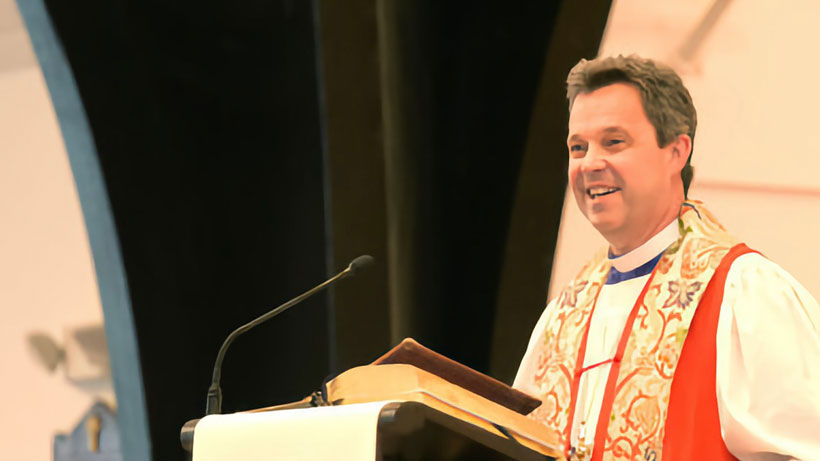The College of Bishops of the Anglican Church in North America has elected the Rt. Rev. Steve Wood, bishop of the Diocese of the Carolinas, as its next archbishop during a conclave held in the crypt of St. Vincent’s Basilica at St. Vincent’s College in Latrobe, Pennsylvania, from Thursday, June 20 to Saturday, June 22, 2024.
Bishop Wood will serve as the third archbishop of the Anglican Church in North America (ACNA), which was founded in 2009 and now comprises over 128,000 members in more than 1,000 congregations across Canada, Mexico, and the United States.
In his new role, Archbishop-elect Wood will preside over meetings of the Provincial Assembly, Provincial Council, and College of Bishops, represent the Province in the Councils of the Church, chair the Executive Committee (board) of the Church, serve as President of the Anglican Relief and Development Fund, and carry out other duties as defined by the Church’s Canons. He will serve a five-year term, with the possibility of a second term.
The Most Rev. Dr. Foley Beach, who is completing his second term and tenth year as archbishop, was first elected in 2014 at St. Vincent’s College. Following the transfer of authority to Archbishop-elect Wood, Beach will take a sabbatical before continuing as bishop of the Anglican Diocese of the South.
Looking ahead, Beach said, “Bishop Wood is an incredible leader and the ACNA is going to be blessed in this next season of our life together.”
The conclave marks the beginning of a week of Provincial leadership gatherings, which will be followed by meetings of the Executive Committee, Provincial Council, and Provincial Assembly. The Provincial Assembly will feature a mission conference for over 900 attendees, with worship, plenary speakers, breakout sessions, and fellowship. A banquet celebrating Beach’s ministry and leadership will be held Thursday evening.
Archbishop-elect Wood will spend the week accompanying Beach to various meetings to become acclimated to his new role before officially assuming his duties at the end of the week. On his election, Wood remarked, “Who expects to be elected the archbishop of the Province? It is overwhelming, humbling, and I am in need of God’s grace and mercy. I will endeavor to be faithful to the people of the ACNA and serve them to the best of my abilities. Please pray for me, my family, my parish, and my diocese.”
The formal transfer of authority from Beach to Wood will take place during the closing Eucharist of the Provincial Assembly on Friday, June 28, 2024.
Wood serves as Bishop of the Diocese of the Carolinas and rector of St. Andrew’s Church in Mount Pleasant, South Carolina.
Originally from Ohio, Wood became rector of St. Andrew’s in 2000. It grew to become one of the largest parishes in the Episcopal Church (the seventh-largest when it left the denomination for the ACNA).
Under Wood’s leadership, St. Andrew’s was described by the Charleston Post & Courier as “one of the Lowcountry’s biggest church success stories,” growing to a membership of more than 3,200 and planting new churches in North Charleston and downtown Charleston.
In March 2020, Wood was hospitalized with COVID-19, recovering after spending 10 days on a ventilator.
A two-thirds vote of bishops with jurisdiction (seated diocesan bishops) is required for the election of a new archbishop. Wood will be invested in a service this autumn, but assumes the spiritual authority to take up his office on June 28 at the closing Eucharist of ACNA Provincial Assembly held this week at St. Vincent’s College in Latrobe, Pennsylvania.
The archbishop-designate will receive the Provincial Cross from Archbishop Foley Beach, who will complete his second five-year term at the conclusion of the Assembly.
Beach is not retiring, but will continue as diocesan bishop for the Anglican Diocese of the South. ACNA constitution provides that an archbishop who has served one five-year term of office may be elected for a second term but not a third.
Before the conclave, Archbishop Beach asked ACNA members to pray for the bishops as they considered his successor. The process ultimately leading to Beach’s selection in 2014 was challenging, with some bishops proving ineligible or unable to secure the necessary two-thirds majority.

